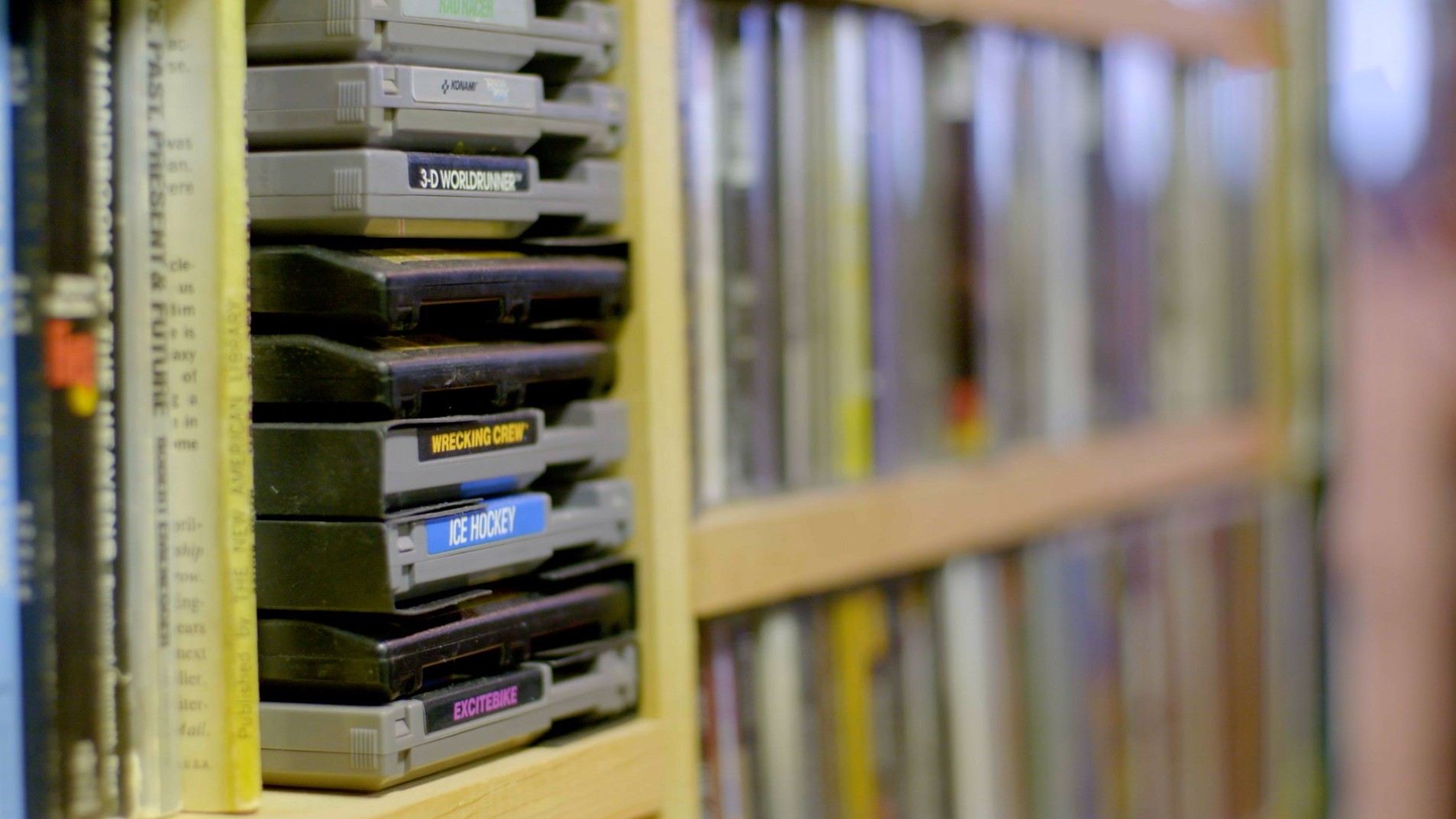This Is Fine. is Broadly's weekly newsletter about the previously private and highly personal tactics people use to make the world less harrowing. In this week's letter, Larissa Pham writes about how Animal Crossing: Pocket Camp showed her a self worth looking after. Sign up here to receive a new essay about a dealing-with-life strategy from Broadly and This Is Fine. each Sunday evening.Every morning when I wake up, I perform the same bleary ritual on my phone: First, I attend to any texts that came in overnight. I take a cursory scan of my inbox, then a quick peek at Twitter and Instagram—just enough to clear away the notifications. (I know it’s frowned upon to look at our phones so early, but I like to let that immediate download of information percolate through my day—it’s the digital equivalent of chugging a glass of water first thing.) Once all the red dots have disappeared, and with the stretchy, sweet kind of luxury we all ought to allow ourselves in the morning, I roll on to my other side and tap open my pleasure, my solace, my home: Animal Crossing: Pocket Camp.
Advertisement
In Animal Crossing, I’m lars, all lowercase. I own great furniture. I manage a bustling campsite full of animal friends and have an exotic tulip garden that I tend to lovingly. I’m—or rather, lars is—dutiful, cheerful, and exceptionally quiet. I communicate in favors, like sharing bugs or watering plants. When I’m feeling restless, I can enjoy different landscapes: a grove of fruit trees; a sunny island; the gentle lapping of waves on a beach. And I have goals: catch three horse mackerel! Deliver two oranges to Bluebear! Collect seasonal plants!There’s something deeply soothing about maneuvering a tiny avatar of yourself around a peaceful, colorful world. lars is really cute—she has big eyes, a mischievous smile, and a navy blue bob with the center part I’ve never quite been able to pull off IRL. She likes prints more than I do, and isn’t afraid of clashing patterns: Right now, she’s wearing a vaguely tribal tattoo-styled orange dragon shirt atop a pair of green tartan pants. She looks like me—this has been corroborated by my roommate, my other roommate, my boyfriend, and my other other roommate—but way more adorable. Her head is huge. At sunset, 5 PM in my real life, her world is washed in gorgeous pinks, oranges, and purples. Around then, we like to go to the beach.Sometimes—often—I feel a kind of tenderness for lars that I don’t reserve for myself. It’s so easy to take care of her; to make sure that she’s watering her plants and accomplishing her goals as she putters around the game’s map. It’s harder to transfer that same softness to my actual body, which is usually dehydrated, overworked, and not nearly as cute. Every so often, the paradox will strike me that my Pocket Camp self is thriving, while I haven’t had a meal yet and it’s coming on 6 PM.
Advertisement
I have a bad habit of always pushing myself. Of not allowing myself the care or tenderness that I instinctively want to provide for other people (and for my lars, my cute li’l virtual self). I imagine it’s not so uncommon to take on more and more work, to be increasingly critical of your own capacity to Get It Done, even as you speed inexorably towards burnout. I’m so much harder on myself than I am on anyone else in my life, hard to a degree that I’d consider unthinkably cruel if I treated anyone else this way.Which is where lars comes in. Someone wise (OK, it was my therapist) once asked me, “Would you treat your baby self the way you treat yourself now?”“No!,” I answered, aghast. I’d never treat baby me the way that I treat myself now!“That baby is still part of you,” they reminded me. “Take care of her.” Externalizing myself helps me take care of myself. Thinking of myself in third person, the way you might write a professional bio, helps soften the edges of my self-criticism, allowing me to celebrate my triumphs just as much as I dwell in my failures and rejections. Other times, this can be as simple as thinking about my younger self as a baby or a child. What would that version of me need? I ask myself, then try to provide for her—some love, some softness, some words of affirmation. When it’s truly impossible to get out of bed, it helps me to imagine myself as a little avatar that I have to shuffle around the universe: OK, lars, it’s time to get up. On those days, I’m not a person, but a little bot. What are my goals for today? How am I going to dress?
Externalizing myself helps me take care of myself. Thinking of myself in third person, the way you might write a professional bio, helps soften the edges of my self-criticism, allowing me to celebrate my triumphs just as much as I dwell in my failures and rejections. Other times, this can be as simple as thinking about my younger self as a baby or a child. What would that version of me need? I ask myself, then try to provide for her—some love, some softness, some words of affirmation. When it’s truly impossible to get out of bed, it helps me to imagine myself as a little avatar that I have to shuffle around the universe: OK, lars, it’s time to get up. On those days, I’m not a person, but a little bot. What are my goals for today? How am I going to dress?

My objectives become gamified when I set my self slightly outside of myself. Then, I can move down the list. Some of my goals are simple, and they're made simpler when I don’t think of myself as a human body, but as a player in a game: Drink a glass of water. Make a thermos full of tea. Cook lunch. Water my plants.In Animal Crossing, if you’ve been away for a little while, Lloid, a chatty, dancing character who watches over your garden will exhort you to do that last one explicitly: “Water your plants!” Once watered, the dry, pale flower beds flush dramatically dark, full of water and sparkling with dew. Little animated shimmers dance around your newly hydrated flowers. On bad days, I think of Lloid as I climb onto my bed to water the calathea and orchid and pothos, all collecting sun in my window. I think about the thirsty roots sparkling, just like in lars’s garden, the leaves perking up and beginning to unfurl.
